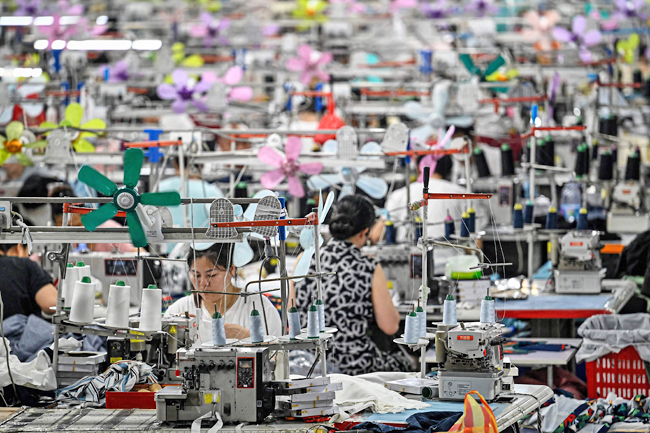AFP – Across Asia, factory workers, directors, trade associations and analysts voiced concern yesterday that United States (US) President Donald Trump’s stinging tariffs could put jobs at risk and hammer key sectors of industry.
Trump ramped up a global trade war as he imposed sweeping levies on imports into the US on Wednesday, sparking worries about what the implications might mean for workers and businesses.
“I can’t eat or sleep well because I keep worrying about losing my job,” said Cao Thi Dieu, who helps make shoes for Western brands such as Nike and Adidas at a factory in Ho Chi Minh City.
Vietnam was hammered with huge tariffs of 46 per cent as part of Trump’s global trade blitz, which sent shares tumbling more than seven per cent in Hanoi yesterday.
Dieu, 38, feared the tariffs would impact the job she has been doing for two decades.
“How will I manage if I lose my job? How will I continue earning money each month to take care of my two children’s education?” she said.
“I only want to stay in the shoe manufacturing job because I don’t know how to do other work.” A director at a financial technology firm in Singapore, Erik Hon, thought the tariffs would drive up global inflation.
Chief eEconomist for Asia Pacific at investment managers Natixis in Hong Kong Alicia Garcia-Herrero warned the tariffs could backfire.
“The largest loser is the US, because everybody’s being taxed so there’s no escape for higher inflation,” she said.
Chrissy Chan, 48, a business owner in Malaysia, told AFP she was worried it would cost her more to travel to the US to visit her family.
But she said the tariff rates “do not make sense to me… I won’t be surprised if the Trump admin does another backpedal”.
President of the SME (small and medium enterprises) Association of Malaysia Chin Chee Seong said the higher tariffs on other countries might give Malaysian firms a competitive advantage.
However, “we import a lot of IT products from the US”, he told AFP.
“If we impose a reciprocal tariff, the end user here will pay more. We will suffer. It works both ways.”



